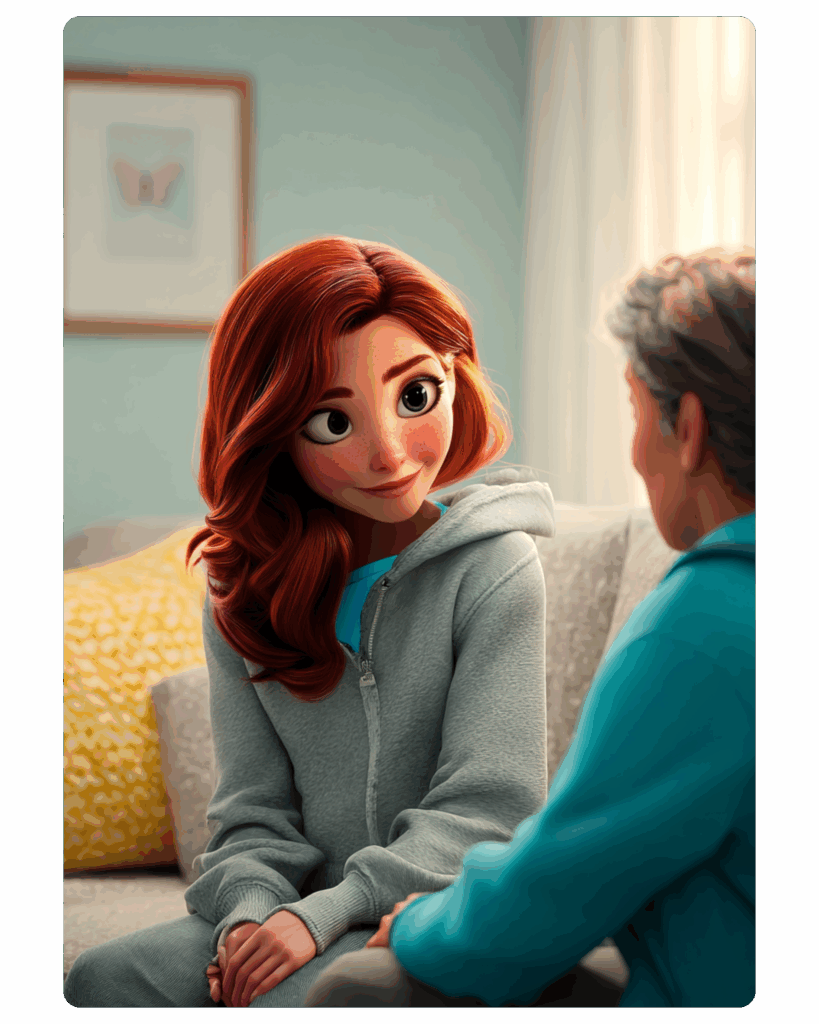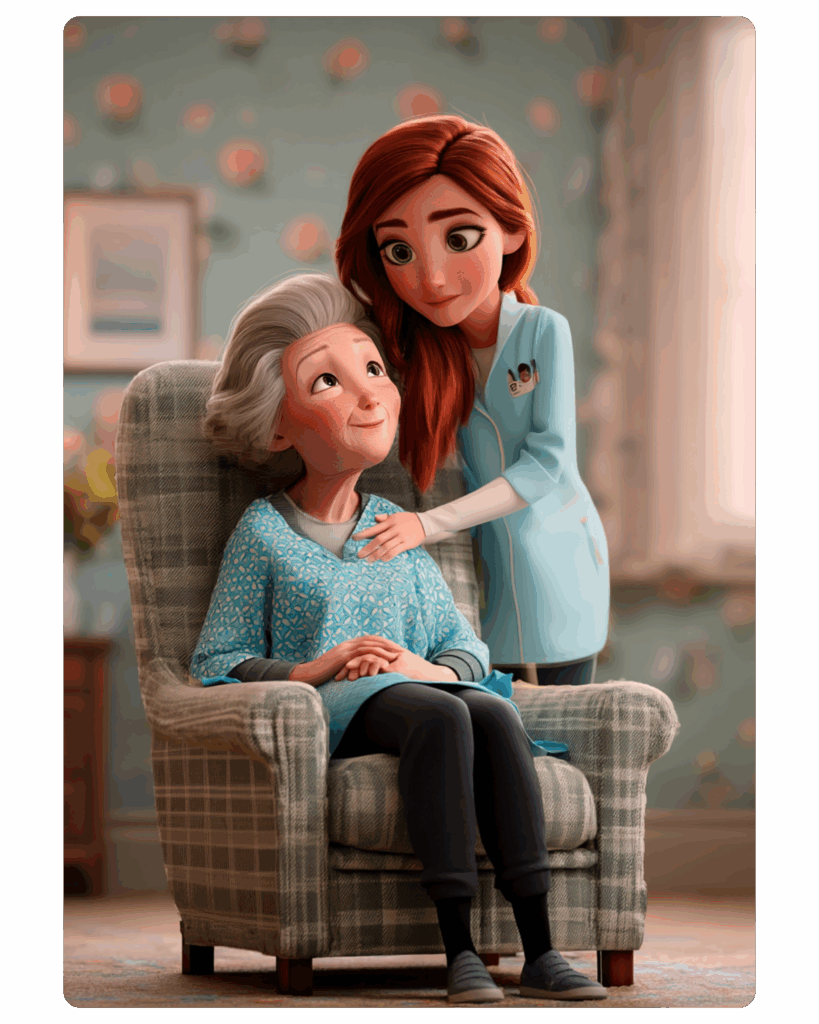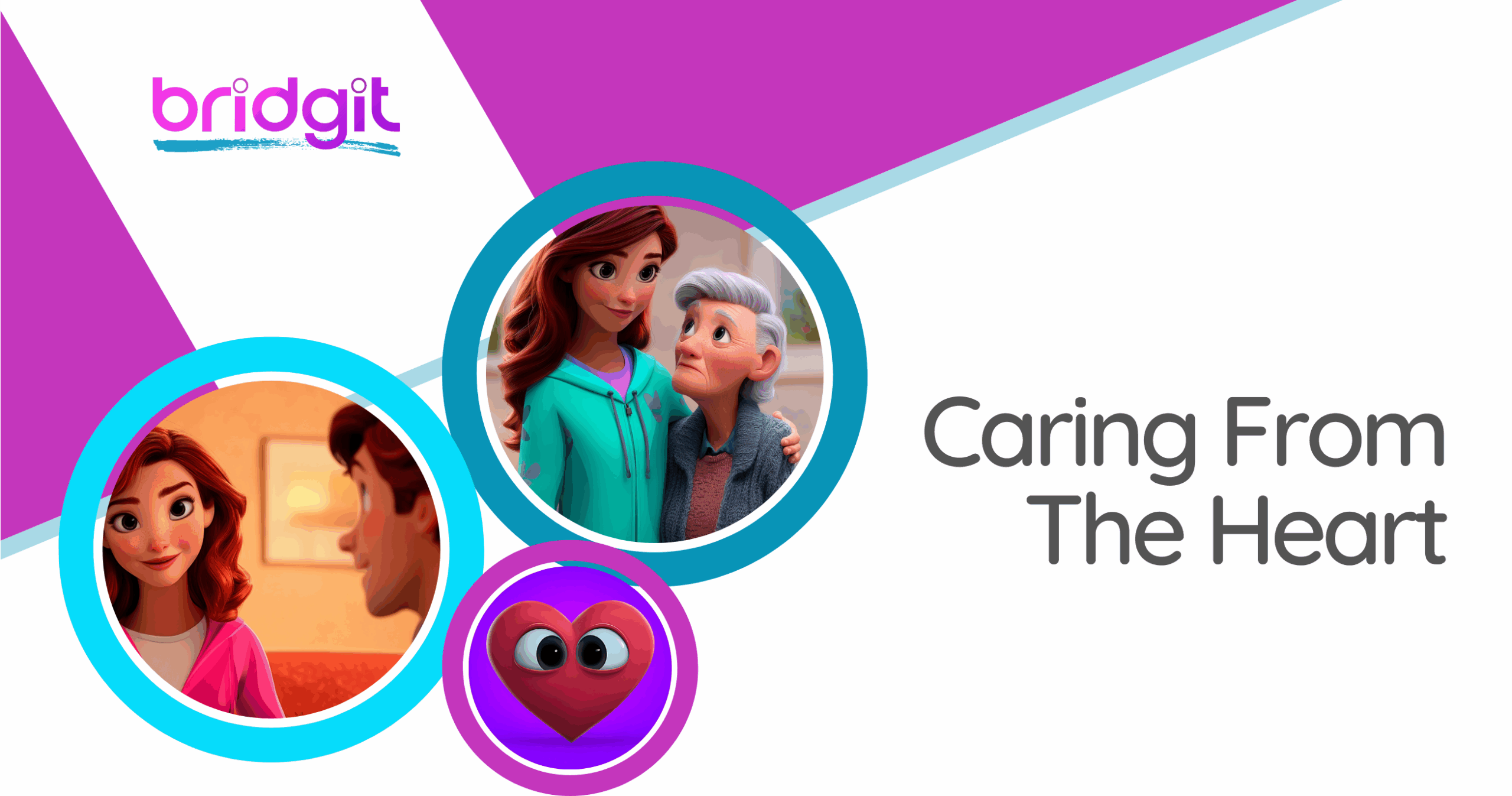Caring From the Heart: Why No One Should Do It Alone
At Bridgit, we talk a lot about hidden carers — the people who quietly hold everything together without ever using the word “carer” to describe themselves. Today, we’re proud to introduce one of those people as part of our team: Laura, whose life has been shaped by caring in ways that are both instinctive and incredibly demanding.
Her story isn’t unusual. In fact, it represents what thousands of people across the UK experience every day. But Laura’s openness, honesty, and lived experience bring something deeply valuable to Bridgit: a real, human understanding of what it means to love, support and worry about someone — often in the quietest hours of the night.
Caring From the Heart
For Laura, caring never started with a label. It started with love.
Her husband lives with Type 1 diabetes and experiences hypoglycaemic episodes every week — sudden drops in blood sugar that leave him confused and unaware of his surroundings. These episodes happen mostly at night, meaning Laura sleeps with one ear open, always half-awake, always ready.
She describes the routine calmly:
“I get up, make sure he has what he needs, stay awake until his glucose levels are back where they should be. It isn’t a duty — it’s the promise we made to each other: in sickness and in health.”
That instinctive love makes the decision to care an easy one.
But the caring itself?
That part is rarely easy.
With two young boys to raise, broken nights turn into long days. Exhaustion builds quietly. You keep going because you care — but you also carry the weight of knowing that if you don’t get up at 3am, something could go terribly wrong.
This isn’t a dramatic moment for many carers. It’s simply life.

The Toll No One Talks About
Caring doesn’t just affect sleep. It affects work. It affects relationships. It affects how you show up for the rest of your family. Even when everything feels “fine,” you’re operating under a level of vigilance most people never have to consider.
You try to be everything for everyone — parent, partner, worker, friend — all while quietly holding up someone else’s safety net.
Laura describes it honestly:
“Loving someone instinctively doesn’t mean you have to do everything alone.”
That sentence sums up the heart of why Bridgit exists.

When the Lines Blur
Laura’s caring journey does not end with her husband. Two years ago, her mum faced a life-altering decision: to undergo surgery to remove her eye, socket and surrounding bone to stop cancer from spreading. She chose the surgery — and thankfully is now cancer-free — but the impact on her life was enormous.
Laura stepped into another caring role without hesitation.
Not because she had to, but because it felt natural.
“I don’t think of it as caring,” she says.
“I do it because I love her.”
But with that love came the familiar “what ifs” so many carers carry quietly:
What if something happens when I’m not there?
What if helping too much takes away her independence?
What if our roles change in ways neither of us wants?
What if resentment creeps in, even though I don’t want it to?
These thoughts aren’t signs of failure — they’re signs of humanity.
And they are far more common than people realise.
Why Carers Need Support — and Why Bridgit Matters
Many carers never call themselves carers at all. They say things like:
“I’m just being a mum.”
“I’m just helping my partner.”
“I’m just doing what anyone would do.”
That humility is admirable, but it also means people go unsupported.
When you don’t recognise your caring role, you don’t ask for flexibility at work, you don’t look for help, and you don’t know what you’re entitled to. You just keep going — until you can’t.
That’s where Bridgit steps in.
Bridgit provides a moment of calm in the chaos — a safe space where someone can say, “I’m really struggling,” and get clear, gentle guidance, even at 2am when no one else is awake. It doesn’t replace love or responsibility. It simply stands alongside them.
Shining a Light on Hidden Caring

Caring rarely looks dramatic. It looks like late-night alarms, deciphering medical letters, rearranging work, whispering “I’m fine” when you’re anything but, and constantly working out who needs what and when.
Bridgit helps turn that invisible labour into something supported.
Our tools help carers to:
recognise their caring role
access the right support quickly
build personalised action plans
share responsibilities with others
reduce exhaustion, uncertainty, and overwhelm
And for services, digital support allows them to reach more carers while keeping human time for human needs.
Laura’s Story Is Many People’s Story
By sharing her experiences, Laura gives voice to the reality many carers never speak about. Her journey shows that caring can be full of love and meaning — but it shouldn’t be done alone.
As she joins the Bridgit team, her insight strengthens everything we build. She is a reminder that carers need space, reassurance, and support — especially when the “what ifs” feel heavy.
Caring is instinctive.
Caring is human.
And with the right support, caring can also be sustainable.
We’re proud to have Laura with us — and proud to support every carer who reads her story and quietly thinks, “That sounds like me.”


